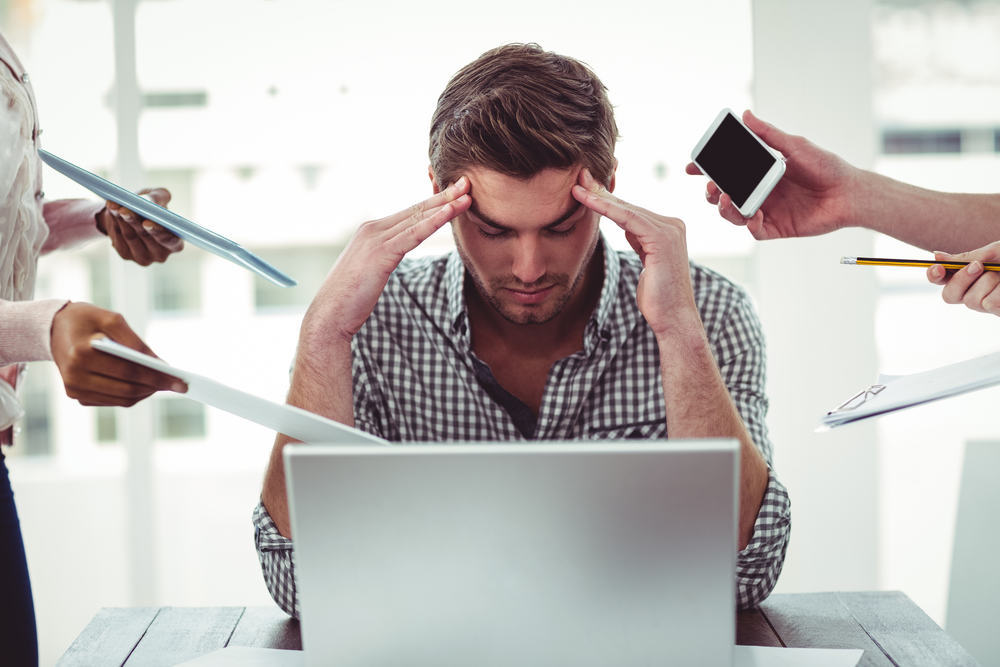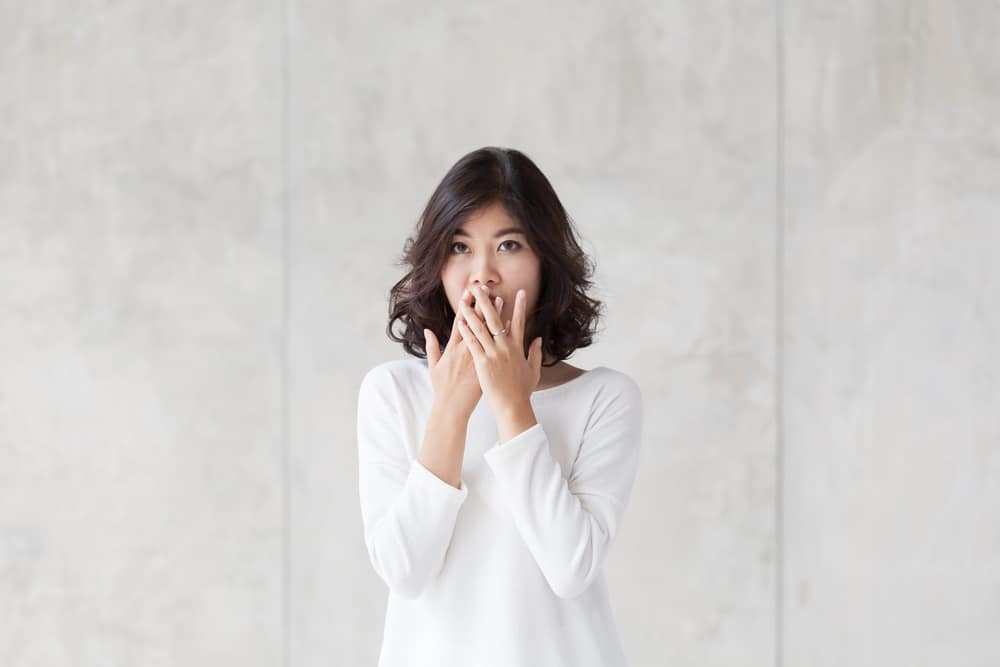Contents:
- Medical Video: 8 Silent Signs Stress is Making You Sick. What To Do About It.
- 1. Bad sleep habits
- 2. Irregular eating
- 3. Drink coffee
- 4. Sit too long
- 5. Mobile phone
- 6. Work overtime
- 7. Watch TV too long
- 8. Too often listen to vent
Medical Video: 8 Silent Signs Stress is Making You Sick. What To Do About It.
It is no longer a secret that millennials (who are now in their productive age) have difficulty avoiding three psychological problems, namely stress, anxiety, and being unproductive. Data American Psychological Association (APA) shows that the millennium generation is less able to overcome these problems compared to the previous generation.
Not only bad for mental health, according to research from Harvard University, anxiety and stress are related to the risk of heart disease, migraines, chronic respiratory disorders, and other adverse conditions.
Unfortunately, work, ambition, and heavy choices in life are the main things why stress, anxiety, and unproductive tendencies happen to you. However, we rarely realize that daily habits also slowly form the three main problems of the millennium. These bad habits are:
1. Bad sleep habits
Poor sleep habits have become common knowledge to be one of the contributing factors to stress, anxiety, and unproductive tendencies. A University of California study states that lack of sleep can attack parts of the brain that function to cause anxiety in humans. The main cause of sleep deprivation is to start sleeping at different times, not prioritizing sleep, and what often happens is busy using a laptop, cellphone, or gadget others before going to bed.
Solution:
Reporting from calmclinic.com, a simple thing that can be a solution to this problem is to make sleep a scheduled routine, keep things away that will make you delay your sleep (laptops, cellphones, etc.), and then exercise regularly during the day.
2. Irregular eating
Not only about body metabolism, regular eating also has a good effect on a person's mental state. Reporting from bodyandhealth.com, "Delaying eating too long or skipping breakfast can cause blood sugar levels to be unstable, and can trigger anxiety, confusion, dizziness, making it difficult to talk." Dehydration or lack of fluids in the body can also have the same effect, because basically food and drink is a biological primary need.
Solution:
Eat with a regular and consistent daily diet. Keep snacks from your desk or table in your room. Always provide a bottle of mineral water wherever you move.
3. Drink coffee
In the context of short-term benefits, indeed we often use coffee as a solution. For example, to make us more focused and alert for the next few hours. However, behind these benefits, coffee makes us more sensitive, irritable, anxious, and nervous. Caffeine turns pumping a sense of panic in us, and then makes us phobias around. Caffeine is also a diuretic, which triggers the acceleration of urine formation, and it adds its own anxiety.
Solution:
For those of you fans of coffee, learn to limit the portion of coffee to one cup a day. If you can't hold it, switch to decaf, or black tea. If this method in a few weeks makes you more calm, stay on the track.
4. Sit too long
Too long sitting will cause you anxiety. This is evidenced by researchers from BMC Public Health. The reality is, now most jobs place us on a work desk, and all work can be accessed through a computer. However, it turns out this is also not good for our psychology.
Solution:
Stand up and walk every 90 minutes you sit. It's better if it is balanced with regular exercise.
5. Mobile phone
The technology offered by today's generation of mobile phones makes us even more addictive. In many contexts, there is a lot that we can achieve with the technology offered by the mobile phones that we have. The Baylor University study in 2014 stated that the screen handphone as an information center can increase nervous system activity. Increased nervous system activity can trigger strong anxiety.
Solution:
Don't always use handphone if you are bored and doing nothing. Get used to put it handhone You are in a bag or in a pocket when there is no need related to it handphone.
6. Work overtime
Go home at the scheduled portion of your job. Quoted from Forbes, when work takes a share of our daily lives, then anxiety will automatically be present. Ignoring working hours can cause psychological problems in us.
Solution:
Schedule all your activities based on time. Limit your maximum working time, and determine your sleep schedule every day. Make sure your work ambitions are in line with how you form a healthy psychological state.
7. Watch TV too long
Many think that resting on the couch and spending time in front of the TV screen as a method of good rest. However, a study refutes the method. A study states that anxiety and stress can be found by someone who watches TV for more than two consecutive hours. Other research also states that this has the same effect as spending time in front of a computer screen.
Solution:
When you're done with your job, look for activities other than watching TV. Look for activities like exercising, chatting, hang out with the park, or write. Increase interaction with nature and humans around you.
8. Too often listen to vent
Spending anxiety on others is an attempt to calm the mind. But a study states that if you are always a place where your friends devote their feelings and emotions, you have the potential to feel worse. So even if vent is done in a group, then the anxiety of someone (who vent) will infect the group.
Solution:
Not that you have to stop listening to friends who want to complain. But after that, look for fun people who can make you happy even forget about any problems.
READ ALSO:
- 10 Ways to Reduce Stress During Pregnancy
- Recognizing People Who Have Suicide Trends
- 5 Dangers of Working Excessively for Your Health












